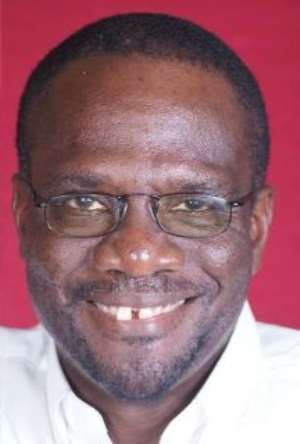
The Deputy Minister in charge of Tertiary Education, Dr Joseph Annan, has condemned the rising incidence of examination malpractice in educational institutions in the country, which has resulted in the production of inferior graduates who cannot assist in the nation's march towards development.
"It is amazing the level of examination malpractice we have in our schools today. It has become institutionalised. It involves students, lecturers, and non-academic staff. It has become a business operated by a Mafia. Unfortunately, our schools are living in a state of denial," he said.
Dr Annan was speaking at a retreat for members of the National Accreditation Board (NAB) in Accra Sunday on the theme: "Accreditation and quality assurance: An introspection."
The retreat was to take stock of the board's activities and strategise for the way forward.
The NAB is a statutory body• mandated to, among other things, "determine the programmes and requirements for the proper operation of an institution and the maintenance of acceptable levels of academic or professional standards in the institution in consultation with that institution".
Dr Annan said examination malpractice affected the quality of the products of the schools and made Ghana non-competitive in the global market where a high calibre of human resource was essential for development.
He said the nation needed to take its rightful place in Africa and the world as a place where highly skilled human resource were produced as it was in the past.
He said the University of Ghana, Legon, formerly one of the best universities in Africa, for example, had no business being ranked 46th in Africa.
He charged the NAB to be proactive in ensuring that the country's human resource were among the best in the world by establishing high standards for the country's schools.
Dr Annan also pointed out that there were too many accredited private tertiary institutions which provided low quality education.
Most of them, he added, had also concentrated on the humanities instead of science and technology, the driving force behind many developed economies. That, he added, must change.
He also said most of the public universities which the new private tertiary institutions were affiliated to did not examine the examination scripts of the students of the affiliate schools as was required.
The affiliates, he stated, awarded degrees without the public universities having any role to play in the endeavour, and called for an end to that practice.
The Chairman of the NAB, Prof. Daniel Akyeampong, said during discussion time that most of the private tertiary institutions would die natural deaths if they did not conform to laid down regulations.
Other members of the board agreed with Dr Annan that there was laxity in the supervision of private tertiary institutions by the public mentoring institutions and said mentoring should cover the administration of examinations for the affiliate schools.
The private tertiary institutions also called for governmental support whenever punitive measures were instituted against them for flouting laid down rules.




 Akufo-Addo spotted ordering chiefs to stand for his handshake
Akufo-Addo spotted ordering chiefs to stand for his handshake
 Akufo-Addo ‘disrespects’ every chief in Ghana except Okyenhene — NDC Communicato...
Akufo-Addo ‘disrespects’ every chief in Ghana except Okyenhene — NDC Communicato...
 Supreme Court clears way for dual citizens to hold key public positions
Supreme Court clears way for dual citizens to hold key public positions
 Be transparent, don’t suppress the truth – Prof. Opoku-Agyemang to Jean Mensa
Be transparent, don’t suppress the truth – Prof. Opoku-Agyemang to Jean Mensa
 ‘I won’t tell the world I was only a driver’s mate during challenges’ – Prof Jan...
‘I won’t tell the world I was only a driver’s mate during challenges’ – Prof Jan...
 We’ll prosecute corrupt officials of Akufo-Addo’s govt – Prof Jane Naana
We’ll prosecute corrupt officials of Akufo-Addo’s govt – Prof Jane Naana
 [Full text] Acceptance speech by Prof Jane Naana Opoku-Agyemang as 2024 NDC Runn...
[Full text] Acceptance speech by Prof Jane Naana Opoku-Agyemang as 2024 NDC Runn...
 Election 2024: Don’t be complacent, we haven’t won yet – Asiedu Nketia cautions ...
Election 2024: Don’t be complacent, we haven’t won yet – Asiedu Nketia cautions ...
 Election 2024: Stop fighting over positions in Mahama’s next govt – Asiedu Nketi...
Election 2024: Stop fighting over positions in Mahama’s next govt – Asiedu Nketi...
 Prof Jane Naana Opoku-Agyemang will restore dignity of vice presidency – Fifi Kw...
Prof Jane Naana Opoku-Agyemang will restore dignity of vice presidency – Fifi Kw...
